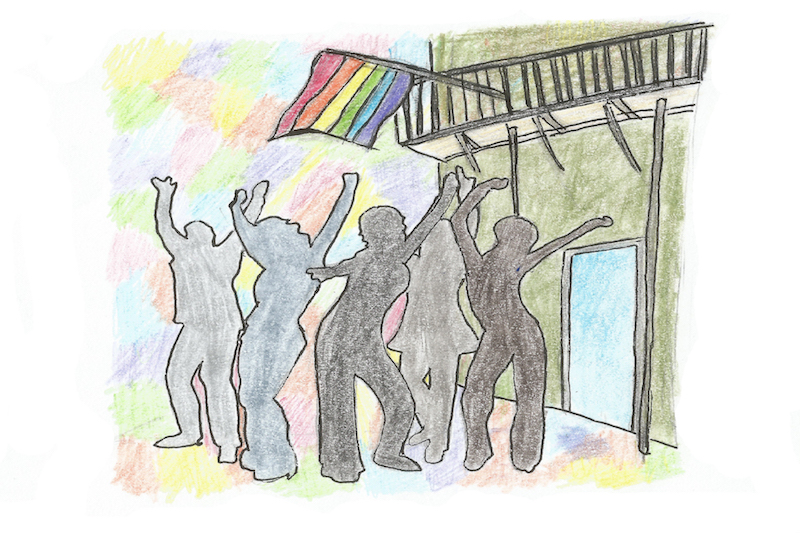Southern Decadence attendees reflect on history of resistance
The French Quarter was alive with bright colors, rainbow flags and glitter-clad bodies on Sunday afternoon, as thousands of community members and tourists alike marched down Royal Street in celebration of Southern Decadence, one of the most notable queer pride celebrations in the world.
Southern Decadence is known around the globe as the largest queer pride event in the country and, according to the official New Orleans Guide, attracts more than 125,000 people from all over the world. The celebration occurs annually during Labor Day weekend and includes a series of parties, club events and day events concluding with a massive parade on Sunday.
Despite the lighthearted exterior of the event, Decadence came out of a need for queer space in New Orleans. Founded in 1972, Decadence came into being in the wake of violence against the LGBTQ+ community across the U.S. Born out of the same struggle that fueled events like the Stonewall Riots in 1969, Decadence acted as a means of resisting oppression and exerting queer pride in spite of it.
“I think that Decadence had more importance historically as a gathering of gay folks who had little if any place and designated time to have fun and socialize, especially in a time in which it was more stigmatized than even today,” Caroline Scott, student program coordinator for the Office for Gender and Sexual Diversity, said.
The lighthearted atmosphere of Decadence is what many students consider to be the thing that sets the weekend apart from other queer pride festivals and events.
“During decadence I feel like I can dress and act how I want with a little less fear than usual,” Sophia Wunch, treasurer of Gamma Rho Lambda Sorority, said. “Also, except for the Sunday parade, Decadence seems a little less cheesy than other pride events. The focus is more on fun and expression than on the whole ‘Love is Love’ narrative.”
Though Decadence is branded as an inclusive space, some communities within the queer umbrella have felt neglected by the predominantly white, male and cisgender atmosphere of the festivities.
“As it is almost entirely centered on gay white cisgender men, people outside of those molds essentially don’t have a place there,” Scott said. “As someone who is not in that group, I don’t even feel like the event is for me. Because of that, an entirely separate event — Dykeadence —was created to cater to women/femme/trans-identifying folks.”
Dykeadance, the list of Decadence events dedicated to queer women, has several events throughout the city primarily on Saturday night, including club functions at Eiffel Society and Bamboula’s, and a party bus. Recently, Dykeadence expanded its branding to be more inclusive of people of color, trans folks and people typically excluded from mainstream Decadence events.
Pearl Dalla, Gender and Sexuality Advisory Committee council chair for Undergraduate Student Government, said that in addition to the centering of white cisgender gay men, the celebration has come across a new problem in the years following the legalization of same-sex marriage, the occupation of queer spaces by straight cisgender people.
“On one hand, I can have sympathy towards a lot of the people outside of the community who come out for Decadence because it’s a taste for first-years as to what is to come with festival season. On the other hand, though, comes rampant co-opting of queer culture. Often via social media, straight people end up centering the day around themselves, when it is in fact not about them.”
The culture of queerness and attitudes toward the LGBTQ+ community are every-changing, which can impact the nature of Decadence. One thing, however, appears to remain consistent: the sense of comfort in representation many members of the queer community feel after and throughout the weekend.
“Decadence is important because it’s another way to celebrate queer culture and increase visibility,” sophomore Natasha McCullough said. “It’s a way of saying, ‘yes, this is the South, but this is New Orleans. We’re here, we’re queer and we’re excited about it.'”
Your donation will support the student journalists of Tulane University. Your contribution will allow us to purchase equipment and cover our annual website hosting costs.




